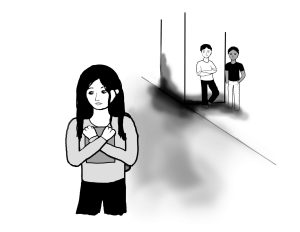Iranian President Mahmoud Ahmadinejad was denied his request to visit Ground Zero during his stay in New York to address the United Nations. He did, however, accept Columbia University’s invitation to speak and answer questions in front of the student body. Mr. Ahmadinejad’s position as president of a state that (allegedly) sponsors terror, refuses to recognize Israel and casts doubt on the veracity of the Holocaust makes this quickly engendered protests from a variety of parties, especially the powerful Israeli lobby. The school, however, remained steadfast and issued statements asserting that the controversial positions held by Mr. Ahmadinejad would not go unchallenged.
Lee Bollinger, Columbia University president, set the confrontational tone of the speech when he began the discussion by saying that Mr. Ahmadinejad had the makings of a petty and cruel dictator and challenging the Iranian President to explain his government’s failure to comply with international nuclear monitoring standards. He ended his statement by casting doubt as to whether or not Mr. Ahmadinejad would have the intellectual courage necessary to answer such challenges.
Generally, this held to be the case. Mr. Ahmadinejad would frequently begin to discuss a question and then digress into a tangent without ever answering the original question. While he managed to win a few laughs throughout the evening, the substance of his speech was not very different from the rambling rhetoric that he usually displays. For example, when asked by the moderator, Dean John H. Coatsworth, about the repression faced by homosexuals in Iran, the President ignored the specifics of the question, and when pressed, finally responded by stating, “In Iran, we don’t have homosexuals, like in your country. We don’t have that in our country.”
As a result, the content of the discussion was limited, with Mr. Ahmadinejad’s frequent ramblings preventing any real discussion; ironic, since Mr. Ahmadinejad began and ended his speech talking about the need for academic freedom to foster effective discussion.
Seeing the unsubstantial nature of this “discussion,” I can’t help but wonder what purpose the President’s visit served. Ostensibly of course, it was to provide a open forum in which an important world leader could be questioned by students and intellectuals. However, the administration at Columbia must have realized that the likelihood of a productive discussion was very low.
This gets at, in some way, a certain problem that is in the modern, American conception of free speech. We have two vocabularies in our head, but they cannot be reconciled. One is that “free speech” has a certain connection to truth and reason; that if we can talk about things freely, it will allow for a productive synthesis, or at least a much more informed decision. On the other hand, we also believe that this free speech should be extended to everyone, and that most points of view should be included in a discussion. However, this is not possible, as this event highlights. Bringing Mr. Ahmadinejad to speak could not possibly foster progressive discussion, since (as Dr. Bollinger noted) the likelihood of him actually speaking freely (as in, saying exactly what he thinks) is, by definition, none. He is a mouthpiece; his very existence is antithetical to truth. The ayatollah has all the real power. Mr. Ahmadinejad does not even have a position or role to give an account of.
So what did the University hope to accomplish? I think that it comes out rather clearly in the opening remarks made by Dr. Bollinger, and the closing remarks made by the moderator. Both stressed how much this event highlights the University’s devotion to free speech and academic freedom.
And that is really what it comes down to, isn’t it? Conspicuous intellectual consumption, after a fashion. Columbia is asserting its own academic power and relevance by hosting a controversial and “wacky” foreign figure, thereby proving its own institutional commitment to intellectual freedom. Hosting Mr. Ahmadinejad is akin to academic shock-value, and his visit to Columbia brought a lot of sensation and very little meaning.
As the moderator said after lamenting the fact that Mr. Ahmadinejad did not have time to fully answer all the questions, he concluded by saying, “But I think we can all be pleased that his appearance here demonstrates Columbia’s deep commitment to free expression and debate.” Having read the whole of the transcript and watched video of the discussion, I am left wondering what (if anything) that statement really means.







Muslims Against Sharia • Oct 4, 2007 at 10:47 am
Muslims Against Sharia condemn, in the strongest possible terms, the decision of Columbia University to provide a speaking venue for Mahmoud Ahmadinejad. Apparently letting Akbar Rafsanjani speak at the National Cathedral was not the height of American Dhimmitude, because providing a venue for the world’s foremost anti-Semite, whose proclaimed goal is the destruction of the USA and Israel, definitely takes the cake. What is surprising is that we don’t hear any complaints from Columbia alumni who should be ashamed of their silence.
More on the subject:
1. Why Does Columbia host Ahmadinejad?
2. Absolutely The Most Brilliant Commentary on Ahmadinejad & Columbia (R-rated language)